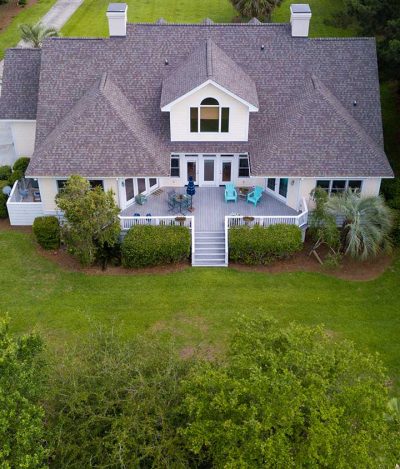Siding: Protecting Your Home’s Exterior
Imagine your home as a fortress, standing strong against the elements. The first line of defense in this analogy is your home’s siding – the exterior barrier that shields your living space from rain, wind, snow, and the sun’s harsh rays. But just like any exterior component, siding can wear down over time. Exposure to weather, normal wear and tear, or even accidental damage can compromise its ability to protect your home.
Understanding the signs of damage and the benefits of repair or replacement is crucial for maintaining a healthy and beautiful home. Not only does proper siding safeguard your home from the elements, but it also plays a significant aesthetic role, contributing greatly to your home’s overall curb appeal. Worn or damaged siding can detract from your home’s visual appeal and potentially even decrease its value. Let’s explore the two key functions of siding, the common types of materials available, and how to determine whether you need repair or replacement.The Two Key Functions of Siding
- Weather Protection: Siding shields your home from rain, wind, snow, and sun. Proper siding prevents water infiltration, which can lead to structural damage and mold growth.
- Curb Appeal: The aesthetics of your siding significantly impact your home’s overall appearance and value. Worn or damaged siding can detract from your home’s visual appeal.
Common Siding Materials
- Vinyl: Affordable, low-maintenance, and available in a wide range of colors and styles.
- Wood: Offers a classic look and can be stained or painted to match your taste. However, it requires more maintenance than other options.
- Metal: Durable and fire-resistant, but can be dented and is typically more expensive than vinyl.
- Fiber Cement: Simulates the look of wood with better weather resistance and lower maintenance requirements.
Repair vs. Replacement: Making the Right Choice
Several factors come into play when deciding between repairing or replacing your siding:
- Extent of Damage: Minor cracks, holes, or loose panels can often be repaired. Extensive damage or widespread deterioration necessitates replacement.
- Siding Material: Older siding materials like asbestos may require removal due to safety concerns.
- Energy Efficiency: Modern siding materials offer superior insulation, potentially lowering your energy bills.
Signs You Need Siding Repair
- Visible Damage: Look for cracks, warping, holes, loose panels, or peeling paint.
- Water Infiltration: Signs of water damage inside your home, like mold or mildew growth, could indicate leaks caused by damaged siding.
- Reduced Curb Appeal: Faded, discolored, or chipped siding detracts from your home’s overall appearance.
Benefits of Siding Repair
- Cost-Effective: Repairing minor damage is typically more affordable than a complete replacement.
- Extends Siding Lifespan: Prompt repairs prevent further damage and lengthen the lifespan of your existing siding.
- Improved Curb Appeal: A well-maintained exterior enhances your home’s visual appeal and potentially increases its value.
- Maintains Weather Protection: Properly repaired siding continues to safeguard your home from the elements.
Signs You Need Siding Replacement
- Extensive Damage: If the damage to your siding is widespread or severe, a complete replacement might be necessary.
- Outdated Material: Homes with older siding materials may require replacement due to safety concerns or inefficiency.
- Energy Inefficiency: Modern siding materials can offer superior insulation, potentially lowering your energy bills.
Benefits of Siding Replacement
- Enhanced Curb Appeal: New siding instantly upgrades your home’s exterior aesthetics and increases its value.
- Improved Durability: Modern siding materials are more resistant to weather damage, requiring less maintenance.
- Increased Energy Efficiency: Modern siding can significantly improve your home’s insulation, lowering energy costs.
- Peace of Mind: A complete replacement ensures your home is protected with a reliable and long-lasting exterior.
Choosing the Right Siding Material
Selecting the right siding material depends on several factors:
- Durability: Consider the climate in your area and the desired lifespan of the siding.
- Maintenance: Some materials require more regular maintenance than others.
- Cost: Vinyl is typically the most affordable option, while metal and wood can be more expensive.
- Aesthetics: Choose a material that complements your home’s architectural style and your personal preferences.
Invest in Your Home’s Future
Maintaining your home’s siding through repairs or replacements is an investment in its longevity and value. Southern Guard Roofing can help you assess your siding needs and recommend the best course of action. Contact us today for a consultation to discuss your repair or replacement options and ensure a beautiful and well-protected home.



